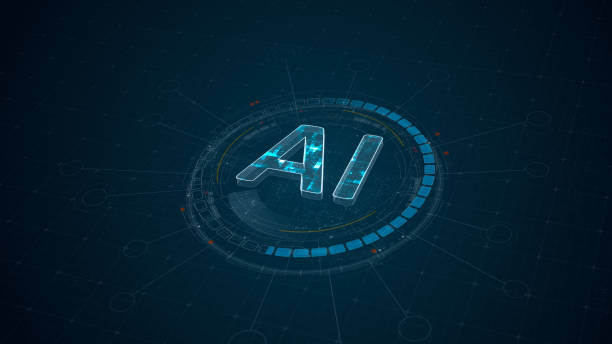What is an Artificial Intelligence Robot and How Does It Work?
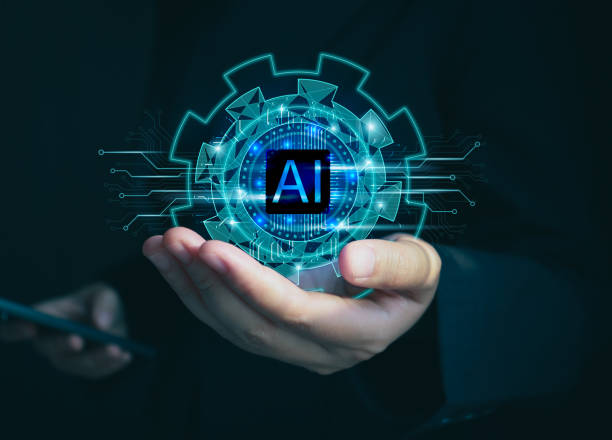
An artificial intelligence robot is a combination of two key concepts: robotics and artificial intelligence.
Simply put, an AI robot is a machine that, using artificial intelligence algorithms, is capable of performing tasks that typically require human intelligence.
These tasks can include learning, reasoning, problem-solving, perception, and interacting with the environment.
AI robots can be physical (like industrial robots) or virtual (like chatbots).
The way they work is that they first collect data through sensors or other inputs, then process this data using artificial intelligence algorithms and make decisions based on it.
Artificial intelligence allows the robot to act independently and adapt to environmental changes.
This ability allows AI robots to be used in various industries, including manufacturing, healthcare, education, and customer service.
In fact, an AI robot tries to mimic the performance and cognitive abilities of humans.
Tired of missing out on business opportunities due to not having a professional company website? Worry no more! With Rasaweb corporate website design services:
✅ Your brand’s credibility and professionalism will increase.
✅ You will attract more customers and sales leads.
⚡ Get free consultation to get started now!
Types of Artificial Intelligence Robots and Their Applications
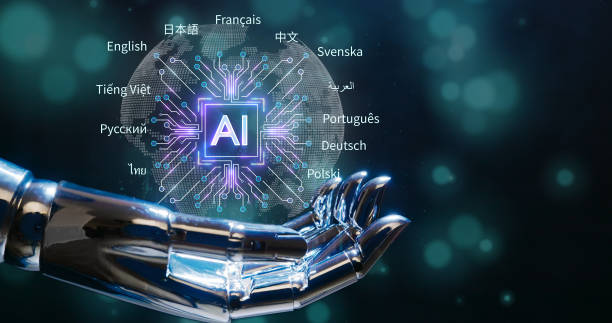
Artificial intelligence robots are divided into different categories based on their type of application and capabilities.
Some of the most important types of AI robots include:
1.
Industrial Robots: These robots are used in factory production lines to perform repetitive and precise tasks.
They typically have mechanical arms that can move objects and automate production processes.
2.
Service Robots: These robots are used in service environments such as hospitals, hotels, and restaurants.
They can perform tasks such as delivering food, transporting medications, and providing information to customers.
3.
Medical Robots: These robots are used in surgeries, rehabilitation, and disease diagnosis.
They can increase the accuracy of surgery and help doctors perform complex procedures.
4.
Chatbots: These virtual robots are used on websites and applications to answer customer questions and provide online support.
They can be available 24 hours a day and answer frequently asked questions.
5.
Educational Robots: These robots are used in schools and universities to teach various concepts to students.
They can interact with students interactively and help them learn.
AI robots, with this diversity, play an important role in improving the quality of life and increasing productivity in various industries.
Also, the development of AI robots helps to create new job opportunities and improve business processes.
Advantages and Disadvantages of Using Artificial Intelligence Robots
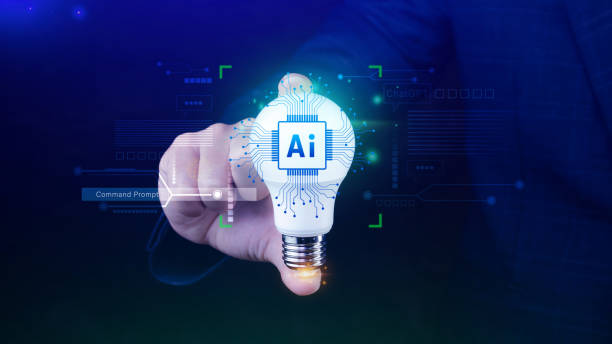
The use of artificial intelligence robots has its own advantages and disadvantages that should be considered.
The advantages of using AI robots include:
1.
Increased Productivity: AI robots can perform tasks faster and more accurately than humans, leading to increased productivity in various industries.
2.
Reduced Costs: By using AI robots, the need for human labor is reduced, which can lead to lower production and operation costs.
3.
Improved Quality: AI robots can perform tasks consistently and without errors, leading to improved quality of products and services.
4.
Increased Safety: AI robots can work in dangerous environments instead of humans, which can lead to fewer accidents and occupational injuries.
However, the use of AI robots also has disadvantages:
1.
High Initial Cost: Purchasing and installing AI robots can be costly, especially for small and medium-sized businesses.
2.
Need for Expertise: Setting up and maintaining AI robots requires technical expertise and knowledge.
3.
Job Loss: The use of AI robots can lead to job loss for some people, especially in jobs that are performed repetitively.
4.
Ethical Issues: The use of AI robots can raise new ethical issues, such as accountability for robot decisions and maintaining data privacy.
Challenges of Developing and Implementing Artificial Intelligence Robots

Developing and implementing artificial intelligence robots faces numerous challenges that must be considered to succeed in this field.
One of the most important challenges is collecting and processing sufficient data.
AI robots need a lot of data to learn and improve their performance.
Collecting and processing this data can be time-consuming and costly.
Another challenge is developing artificial intelligence algorithms that can effectively perform the desired tasks.
These algorithms must be able to learn, reason, and solve problems.
Also, integrating AI robots with existing systems is a major challenge.
AI robots must be able to work harmoniously with other systems and devices.
In addition, security and privacy issues are also among the important challenges in the development of AI robots.
AI robots must be protected against cyberattacks and user data must be kept secure.
Given these challenges, the development and implementation of AI robots requires coordinated efforts from various experts.
AI robots require various specialties including software engineering, hardware engineering, data science, and ethics.
Does your current website properly display your brand’s credibility? Or does it drive away potential customers?
Rasaweb, with years of experience in designing professional corporate websites, is your comprehensive solution.
✅ A modern, beautiful website that matches your brand identity
✅ A significant increase in attracting leads and new customers
⚡ Contact Rasaweb now for a free corporate website design consultation!
The Future of Artificial Intelligence Robots in Various Industries
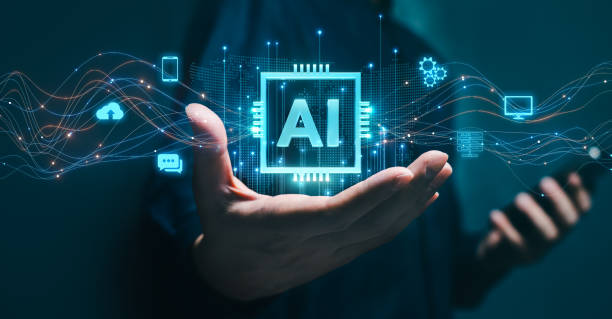
The future of AI robots in various industries is very bright and promising.
With advances in technology, AI robots are expected to play a more important role in our daily lives.
In the manufacturing industry, AI robots can fully automate production lines, improve product quality, and reduce costs.
In the healthcare industry, AI robots can play an important role in surgeries, disease diagnosis, rehabilitation, and providing services to patients.
In the education industry, AI robots can help students as private tutors and teaching assistants.
In the service industry, AI robots can provide services to customers as chatbots and virtual assistants.
Also, AI robots can play an important role in the transportation industry, such as self-driving cars and delivery drones.
Given these applications, AI robots are expected to become one of the most important technologies of the 21st century.
In the future, AI robots can be used as a main workforce in many industries and help improve the quality of life.
The Impact of Artificial Intelligence Robots on the Labor Market and Employment

The impact of AI robots on the labor market and employment is an important and debated topic.
On the one hand, AI robots can increase productivity and reduce costs by automating tasks, which can lead to economic growth.
On the other hand, AI robots can lead to job loss for some people, especially in jobs that are performed repetitively and routinely.
However, many experts believe that AI robots not only do not lead to job loss, but can also create new job opportunities.
These new job opportunities may be in areas such as the development, maintenance, and support of AI robots.
Also, AI robots can help people perform their tasks better and faster and engage in more creative and strategic tasks.
For example, AI robots can analyze data and prepare analytical reports, which helps managers make better decisions.
Overall, the impact of AI robots on the labor market and employment depends on how we use this technology and how we prepare people to work alongside AI robots.
Automation can be useful if managed properly.
Ethics and Accountability in the Use of Artificial Intelligence Robots
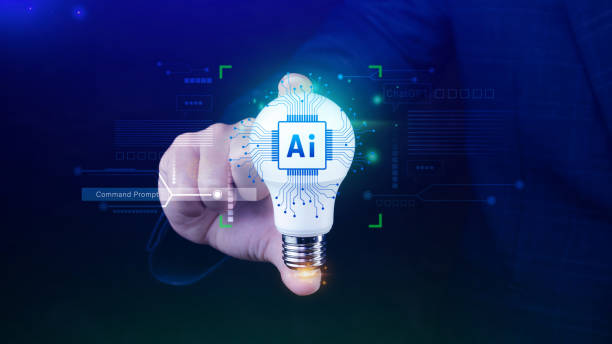
The use of AI robots raises new ethical and accountability issues that must be addressed.
One of the most important ethical issues is privacy.
AI robots typically collect and process a lot of data, which can lead to a violation of people’s privacy.
Therefore, laws and regulations must be put in place to protect people’s privacy against the misuse of AI robots.
Another ethical issue is accountability.
If an AI robot makes a decision that leads to harm, who is responsible? Is it the robot’s manufacturer, the robot’s user, or the robot itself? These questions require careful consideration and determination of accountability for the decisions of AI robots.
In addition, discrimination is also an important ethical issue.
AI algorithms may have unconscious biases that lead to decisions that are unfair to some people.
Therefore, it must be ensured that AI algorithms are fair and non-discriminatory.
Overall, the use of AI robots requires attention to ethical and accountability issues to prevent potential harm and to use this technology responsibly.
| Topic | Description |
|---|---|
| Privacy | Protecting personal data against misuse |
| Accountability | Determining responsibility for robot decisions |
| Discrimination | Preventing unfair algorithms |
Case Study of Successful Applications of Artificial Intelligence Robots
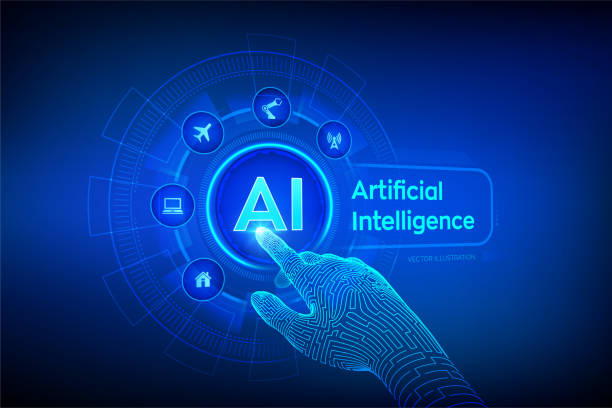
A case study of successful applications of AI robots can help us better understand the potential of this technology.
One successful example is the use of AI robots at Amazon.
Amazon uses AI robots in its warehouses to move goods and pack orders, which has increased the speed and accuracy of the delivery process.
Another example is the use of chatbots in insurance companies.
These chatbots can help customers get information, file claims, and track cases, which has improved customer service.
Also, the use of surgical robots in hospitals is also a successful example.
These robots can perform complex surgeries with greater precision and help reduce patient recovery time.
In addition, the use of AI robots in agriculture is also a successful example.
These robots can help farmers plant, maintain, and harvest crops, which has increased productivity and reduced costs.
These cases show that AI robots can have successful applications in various industries and help improve processes and increase productivity.
AI robots in these industries not only help reduce costs, but also increase speed and accuracy.
Case studies help us gain a better understanding of the topic.
Are you falling behind in competition with large online stores?
Rasaweb will bring your business online and increase your market share by designing a professional online store!
✅ Increased brand credibility and customer trust
✅ Easy shopping experience leads to more sales
⚡ Act now to receive a free website design consultation!
Important Points in Selecting and Implementing Artificial Intelligence Robots
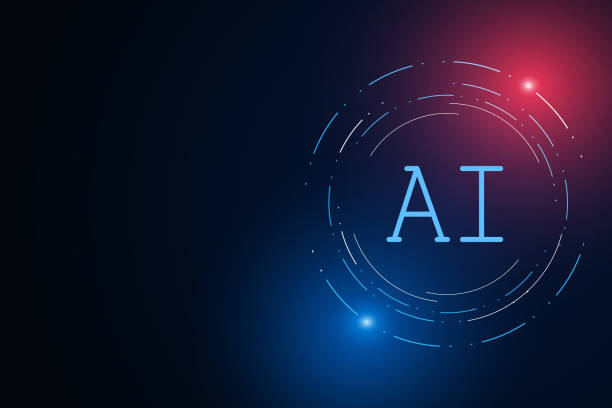
Selecting and implementing AI robots is a complex process that requires careful consideration and planning.
First of all, you must accurately identify your needs.
What tasks do you want to assign to AI robots? What do you expect from the robot? After identifying the needs, you should research and compare different AI robots.
What features are important to you? What budget do you have? After selecting the AI robot, you need to plan for its implementation.
How will you integrate the robot with existing systems? What training do your employees need? In addition, you should also pay attention to security issues.
How will you protect the AI robot against cyberattacks? How will you protect your data? Finally, you must continuously evaluate the robot’s performance and make changes to its settings if necessary.
How can you improve the robot’s performance? How can you reduce the robot’s maintenance costs? By following these tips, you can select the right AI robot and implement it successfully.
| Tip | Description |
|---|---|
| Identify Needs | Specify tasks and expectations |
| Research and Compare | Examine different robots and compare features |
| Implementation Planning | Integration, training and security issues |
| Continuous Evaluation | Improve performance and reduce costs |
New Trends and Innovations in the Field of Artificial Intelligence Robots
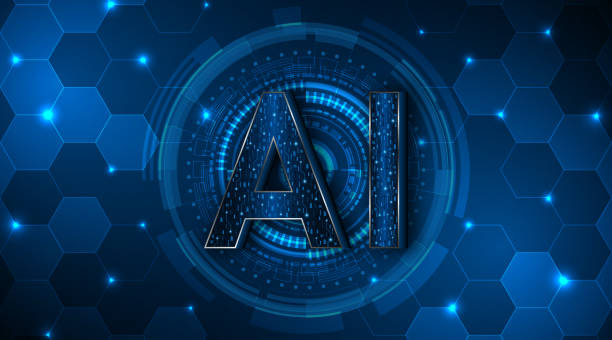
New trends and innovations in the field of AI robots are changing rapidly and creating new potentials for various applications.
One of the most important trends is deep learning.
Deep learning allows AI robots to learn complex patterns and relationships from data and make better decisions.
Another innovation is explainable artificial intelligence.
Explainable artificial intelligence allows AI robots to explain why they made a particular decision, which increases users’ trust in robots.
Also, human-robot collaboration is also an important trend.
In this approach, humans and robots work together to perform tasks more effectively.
In addition, self-driving robots are also an important innovation.
Self-driving robots can move in different environments and perform their tasks without human intervention.
Overall, new trends and innovations in the field of AI robots make this technology more powerful, reliable and practical and can play an important role in various industries.
AI robots with these trends can become one of the most important tools of mankind.
With deep learning, AI robots can solve even the most complex problems.
Frequently Asked Questions
| Row | Question | Answer |
|---|---|---|
| 1 | What is an AI robot? | An AI robot is a machine that is capable of understanding, reasoning, learning and problem-solving, and can perform complex tasks with relative autonomy. |
| 2 | What are the most important applications of AI robots? | The main applications include industrial manufacturing, customer service (chatbots), medicine and surgery, self-driving transportation, space exploration, and military affairs. |
| 3 | What is the main difference between an AI robot and a regular robot? | A regular robot only follows programmed instructions, while an AI robot can learn from data, make decisions, and adapt to new environments. |
| 4 | How do AI robots learn? | They identify patterns and improve their performance through machine learning algorithms (such as deep learning, reinforcement learning) and processing vast amounts of data. |
| 5 | Can AI robots have emotions? | Currently, AI robots do not have real emotions in the human sense. They can mimic or recognize emotions, but they do not have the understanding and experience of them. |
| 6 | What are the current limitations of AI robots? | Limitations include the need for large amounts of data, the inability to understand abstract concepts, the lack of true creativity, ethical issues, and the challenges of generalizability in new environments. |
| 7 | What is the role of artificial intelligence in the development of Humanoid robots? | Artificial intelligence helps humanoid robots walk, maintain their balance, understand their surroundings, interact with humans, and perform complex tasks. |
| 8 | How is the future of AI robots predicted? | AI robots are predicted to become smarter, more autonomous, and capable of performing more complex tasks in everyday life and industry, and their interaction with humans will increase. |
| 9 | Can AI robots replace all human jobs? | It is unlikely that all human jobs will be replaced. Robots take over many repetitive and dangerous tasks, but jobs that require creativity, empathy, and ethical judgment will remain. |
| 10 | What ethical and social challenges arise with the spread of AI robots? | The challenges include issues related to privacy, data security, ethical decision-making by robots, the impact on employment, and accountability in the event of errors. |
And other services of Rasa Web advertising agency in the field of advertising
Smart direct marketing: An effective tool for analyzing customer behavior with the help of intelligent data analysis.
Intelligent custom software: A creative platform to improve customer acquisition by managing Google Ads.
Smart direct marketing: A combination of creativity and technology to increase click-through rates by designing an attractive user interface.
Intelligent UI/UX: A fast and efficient solution for analyzing customer behavior with a focus on managing Google Ads.
Smart brand identity: Professional optimization to improve SEO ranking using an SEO-oriented content strategy.
And more than hundreds of other services in the field of internet advertising, advertising consulting and organizational solutions
Internet advertising | Advertising strategy | Advertorial
Resources
What are smart robots and how do they work?
,Types of artificial intelligence and their applications
,What is Artificial Intelligence? | Hamyar Academy
,Smart robots at risk of destroying efficiency in industries
? Are you looking to upgrade your business online? Rasa Web Afarin, the leading digital marketing agency, is your trusted partner on the path to digital success by providing specialized services including custom website design, professional SEO and targeted advertising campaigns.
📍 Tehran, Mirdamad Street, next to the Central Bank, South Kazerun Alley, Ramin Alley No. 6
“`

